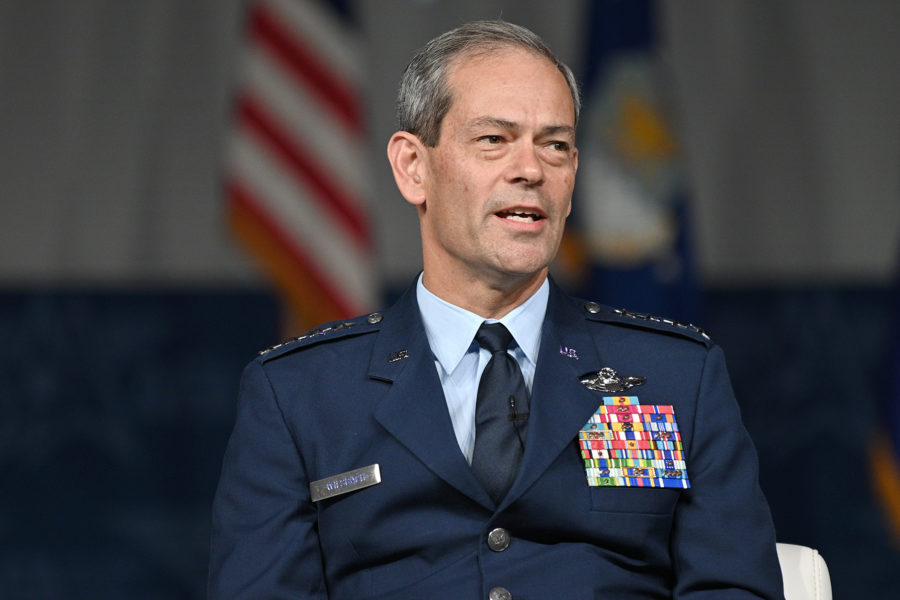Gen. Kenneth S. Wilsbach was confirmed as the 24th Air Force Chief of Staff Oct. 30 by unanimous consent. Shortly before, his predecessor, Gen. David W. Allvin, was “clapped” out of the Pentagon, 10 weeks after he unexpectedly announced his retirement on Aug. 18, two years into his four-year term.
Wilsbach, a fighter pilot whose last assignment was atop Air Combat Command, takes over the Air Force as it works to overcome readiness challenges and to modernize its aging air fleet. Prior to taking over ACC, the Air Force’s largest command, he headed Pacific Air Forces, the Air Force component of U.S. Indo-Pacific Command.
Wilsbach stressed readiness and standards at ACC and focused his remarks during his confirmation hearing on readiness and flying time. Soon after arriving at ACC in February 2024, he called out a “discernible decline” in Air Force standards, noting a lack of commitment and enforcement. He directed sweeping inspections to address it. He also developed a new metric to measure aircraft readiness including monthly briefings to him on the health of the fleet.
Those priorities dovetail with Defense Secretary Pete Hegseth’s emphasis on fitness and grooming standards, warrior ethos, and lethality. Air Force Secretary Troy Meink’s has noted his own concerns about readiness and the need to “rebalance” accounts.
Under previous Air Force Secretary Frank Kendall, Allvin helped champion a reorganization program dubbed “re-optimization for great power competition,” which included creating a centralized Integrated Capabilities Command to oversee Air Force requirements setting; expanding Air Education and Training Command’s mission; and creating “Deployable Combat Wings” to create a more predictable plan for organizing and preparing forces to deploy.
Much of that plan has already begun to unwind. Meink nixed Integrated Capabilities Command and four-stars and the Air Force’s Major Commands pushed back on the deployable combat wings concept.
Wilsbach assumes a large modernization portfolio, including troubled F-35, KC-46, and T-7 programs; the B-21 bomber program, which is thus well regarded; and new fighter programs including the autonomous Collaborative Combat Aircraft and the future F-47 air dominance fighter. Looming over it all is the Sentinel intercontinental ballistic missile program, among the biggest modernization programs in the history of the department and already billions over budget.
He arrives in the midst of a government shutdown and facing difficult tradeoffs among competing requirements.
“I want to welcome General Kenneth Wilsbach as the 24th Chief of Staff of the Air Force!” Meink wrote in a social media post on X. “With his vast experience in the Pacific and as a commander at all levels, he is the right leader for the Air Force.”
With more than 6,000 flying hours in the F-15C, F-16C, MC-12, and F-22A, Wilsbach has flown 71 combat missions and served as commander of the 7th Air Force in Korea, the 11th Air Force in Alaska, and the 18th Wing at Kadena Air Base, Japan.
Space Editor Courtney Albon and Pentagon Editor Chris Gordon contributed reporting.




